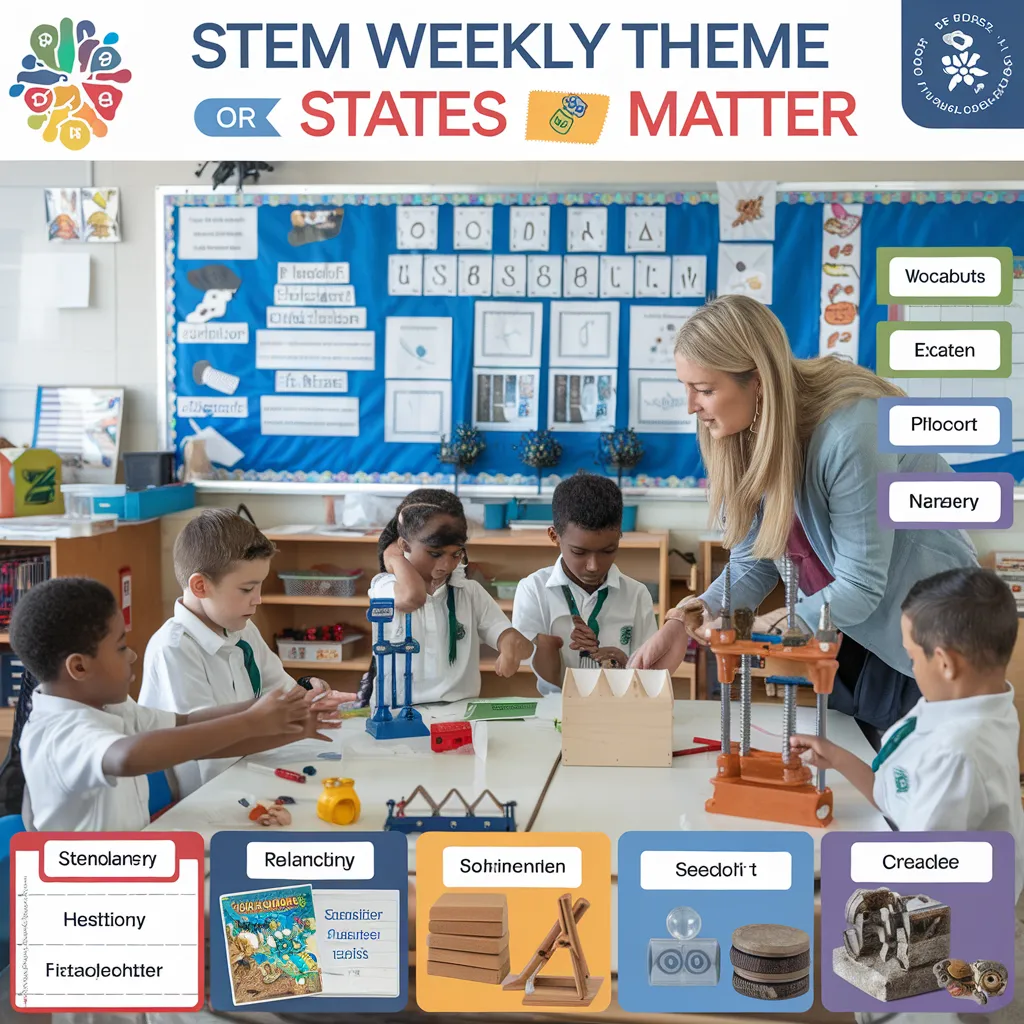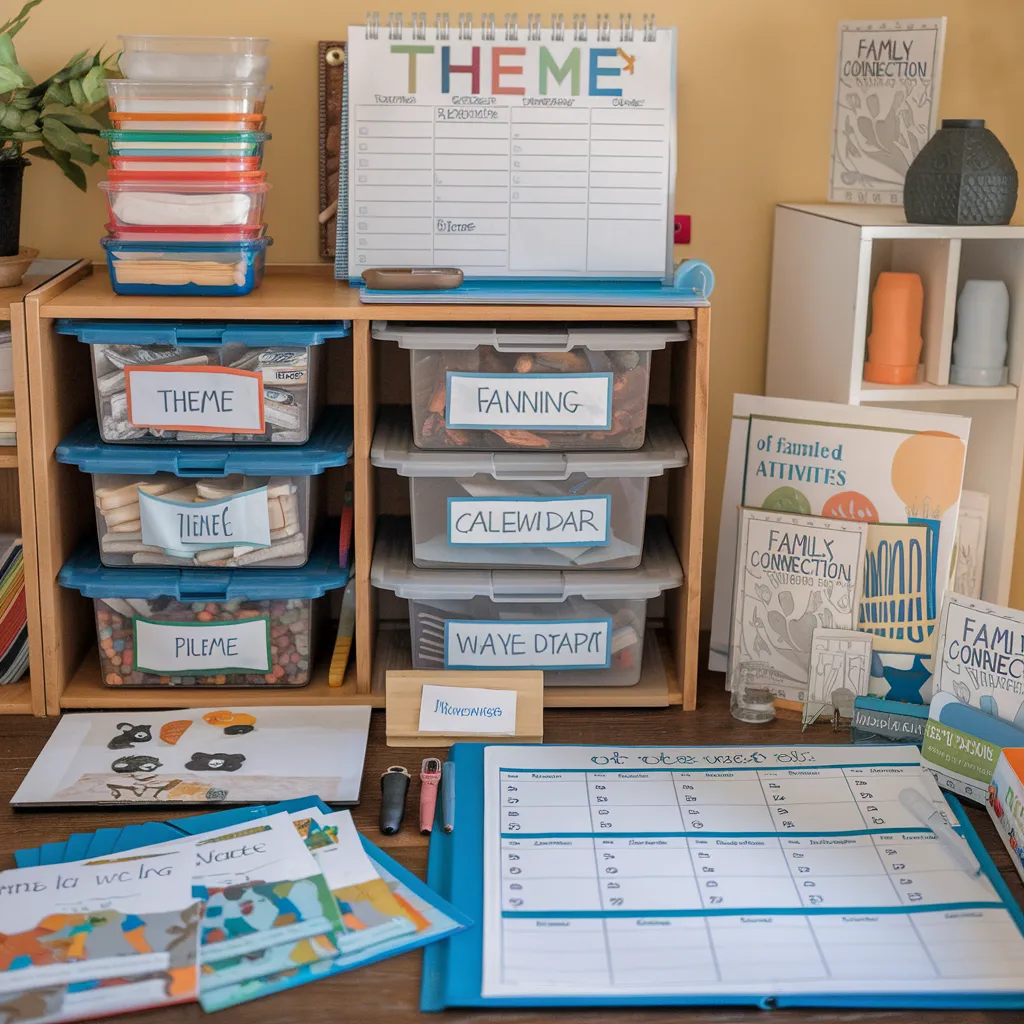Theme of the week ideas provide a powerful framework for creating cohesive, engaging learning experiences that captivate student interest and connect different subject areas. This approach transforms ordinary lesson plans into extraordinary educational adventures by organizing activities, decorations, and instruction around a central concept that changes weekly. Whether you’re a preschool teacher seeking to organize your curriculum, an elementary educator looking to enliven your classroom, or a homeschool parent planning engaging lessons, theme of the week ideas offer versatile structures that simplify planning while maximizing student engagement. From transportation to weather patterns, carefully selected weekly themes create meaningful learning contexts that students eagerly anticipate while building connections between different skills and subject areas.

Educational Benefits of Theme of the Week Ideas
Theme of the week ideas offer substantial advantages beyond their immediate appeal:
Learning Enhancement
- Contextual understanding: Concepts become meaningful within thematic frameworks
- Cross-curricular connections: Subjects naturally integrate through common themes
- Vocabulary development: Theme-specific terms build language in authentic contexts
- Memory reinforcement: Information connects to thematic anchors for better recall
- Transfer of knowledge: Skills practiced in one context apply across different scenarios
Implementation Advantages
Theme of the week ideas benefit both educators and students:
- Planning Efficiency
- Simplified resource gathering around central themes
- Natural lesson sequencing within weekly frameworks
- Streamlined decoration and environment changes
- Focused material development with clear parameters
- Balanced coverage across curriculum areas
- Student Engagement Benefits
- Predictable yet novel weekly rhythm creates security with excitement
- Accessibility for different learning styles through varied theme exploration
- Increased motivation through curiosity about upcoming themes
- Deeper investigation opportunities within defined timeframes
- Celebration of learning through culminating theme activities
Seasonal Theme of the Week Ideas
Align weekly themes with the natural progression of the year:
Fall Theme of the Week Ideas

- Apple Exploration
- Science: Apple varieties, parts, life cycle
- Math: Sorting, counting seeds, measurement
- Literacy: Apple-themed stories and poems
- Art: Printing with apple halves, tree collages
- Movement: Apple picking motions and games
- Weather Changes
- Science: Temperature measurement, cloud types
- Math: Data collection, weather pattern graphing
- Literacy: Weather vocabulary, forecasting practice
- Social Studies: Climate zones, weather impacts on communities
- Art: Cloud formations with cotton, rain paintings
- Community Helpers
- Social Studies: Different community roles and tools
- Literacy: Occupation vocabulary, thank-you letter writing
- Math: Sorting helper tools, mapping community services
- Dramatic Play: Role-playing different community jobs
- Art: Creating helper puppets and props
Winter Theme of the Week Ideas
- Light and Shadows
- Science: Light sources, transparent vs. opaque materials
- Math: Measuring shadow lengths at different times
- Literacy: Shadow-themed stories, descriptive writing
- Art: Shadow puppets, silhouette portraits
- Movement: Shadow tag and mirroring games
- Arctic Animals
- Science: Adaptation, hibernation, migration
- Math: Measuring blubber effectiveness with ice experiments
- Literacy: Arctic animal fact books, habitat descriptions
- Art: Texture collages with white materials
- Movement: Penguin waddles and polar bear crawls
- Construction and Building
- Science: Simple machines, structural integrity testing
- Math: Measurement, shapes, symmetry in structures
- Literacy: Building vocabulary, sequential instruction writing
- Social Studies: Architecture around the world
- Engineering: Challenges with various building materials
Spring Theme of the Week Ideas
- Plant Growth
- Science: Seed parts, growth requirements, observation
- Math: Measuring and graphing plant development
- Literacy: Plant journals, garden poetry
- Art: Botanical drawings, seed mosaics
- Movement: Growing from seed interpretive movement
- Insects and Bugs
- Science: Insect body parts, life cycles, habitats
- Math: Symmetry, pattern recognition, counting
- Literacy: Insect-themed fiction and non-fiction
- Art: Model insects with recycled materials
- Movement: Bug movement imitations
- Water Cycles
- Science: States of matter, evaporation experiments
- Math: Volume measurement, precipitation data collection
- Literacy: Water vocabulary, flow sequence descriptions
- Art: Watercolor techniques, cloud clay models
- Movement: Rain dance choreography, water cycle role play
Conceptual Theme of the Week Ideas
These themes transcend seasons and work year-round:

STEM Theme of the Week Ideas
- Simple Machines
- Explore different machines one each day
- Create working models with classroom materials
- Test mechanical advantage through experiments
- Identify machines in everyday objects
- Design solutions for classroom challenges
- States of Matter
- Investigate solid, liquid, gas, and plasma
- Conduct phase change experiments
- Create state-change demonstration models
- Explore non-Newtonian substances
- Connect to real-world examples and applications
- Coding and Patterns
- Develop unplugged coding activities
- Create and continue visual and physical patterns
- Practice directional language and mapping
- Build algorithm thinking with daily routines
- Design simple games using coding principles
Cultural Theme of the Week Ideas
- Global Foods
- Explore international nutrition and ingredients
- Map food origins around the world
- Practice measurement through simple recipes
- Learn cultural significance of different foods
- Compare preservation methods across cultures
- Music Around the World
- Introduce instruments from different continents
- Practice rhythm patterns from various traditions
- Connect music to cultural celebrations
- Create simple instruments with classroom materials
- Explore how geography influences musical styles
- Traditional Games
- Learn games from different countries
- Compare similar games across cultures
- Create game boards and pieces
- Analyze strategy and mathematical thinking
- Connect games to historical contexts
Social-Emotional Theme of the Week Ideas
- Emotions and Expression
- Build emotional vocabulary through literature
- Create emotion identification tools
- Practice appropriate expression techniques
- Develop empathy through perspective-taking
- Connect emotions to physical sensations
- Friendship and Cooperation
- Explore qualities of good friendship
- Practice collaborative problem-solving
- Develop conflict resolution strategies
- Create cooperative art and building projects
- Role-play different social scenarios
- Personal Strengths
- Identify individual talents and interests
- Create strength spotting activities
- Practice growth mindset language
- Develop perseverance through challenges
- Build appreciation for diverse abilities
Implementing Effective Theme of the Week Ideas
Maximize impact with these practical strategies:

Planning Approaches for Theme of the Week Ideas
- Balanced Framework Development
- Create consistent daily components (read-aloud, vocabulary focus, etc.)
- Balance teacher-directed and student-choice activities
- Include multi-sensory exploration opportunities
- Design appropriate assessment connections
- Plan culminating projects or celebrations
- Resource Management Systems
- Develop theme rotation schedules for multi-year use
- Create digital or physical theme resource folders
- Build classroom library collections by theme
- Establish theme material storage solutions
- Design reusable theme introduction presentations
Differentiation Strategies for Theme of the Week Ideas
- Addressing Diverse Needs
- Create tiered activities within each theme
- Develop extension options for advanced learners
- Design scaffolded supports for struggling students
- Provide choice boards with multiple exploration paths
- Incorporate diverse representation within themes
- Family Connection Enhancement
- Send home theme preview announcements
- Create family participation opportunities
- Develop simple home extension activities
- Request theme-related item contributions
- Share culminating theme projects and learning
Conclusion
Theme of the week ideas provide versatile frameworks that enhance learning while simplifying planning for educators. By organizing instruction around engaging themes that change weekly, teachers create cohesive, memorable educational experiences that students eagerly anticipate. Whether focused on seasonal phenomena, STEM concepts, cultural exploration, or social-emotional development, weekly themes connect different subjects while providing meaningful contexts for skill development. Start by selecting themes that align with your curriculum requirements and student interests, planning several weeks ahead while remaining flexible enough to follow emerging fascinations. Remember that the most successful theme implementations balance structured learning with open-ended exploration, creating rich, multidimensional experiences that bring education to life. With thoughtful planning and creative implementation, theme of the week ideas can transform ordinary classrooms into extraordinary learning adventures.
42 Inspiring Theme-Based Classroom Decorations That Transform Learning Environments
Frequently Asked Questions
How do I balance theme exploration with required curriculum standards?
Start by mapping your required standards across the year, then select theme of the week ideas that naturally support those standards rather than forcing connections. Create a curriculum alignment document that explicitly links each theme activity to specific standards, ensuring comprehensive coverage. Reserve approximately 70% of instructional time for theme-connected standard teaching and 30% for enrichment exploration of the theme. When necessary, adapt engaging theme contexts to practice required skills—for example, using ocean theme word problems to practice required math operations. Remember that effective themes enhance rather than replace standards-based instruction by providing meaningful contexts that increase engagement and retention.
What if students lose interest in a theme before the week ends?
Prepare flexible extension plans that can shift focus if student interest wanes. Build themes with multiple sub-topics that allow you to pivot toward aspects generating more curiosity. Include student choice components that can expand based on emerging interests. Consider frontloading the most engaging activities early in the week, with later activities building on established knowledge. For consistently challenging themes, consider a « theme and a half » approach where you formally transition mid-week while maintaining connections to previous learning. The most effective theme implementations balance planned activities with responsiveness to student engagement, treating the weekly framework as a guide rather than a rigid requirement.
How many theme of the week ideas should I plan for a school year?
Most educators find success with 25-30 distinct themes per school year, allowing for some multi-week themes for complex topics and accounting for holidays and school breaks. Consider planning themes in 6-9 week blocks rather than mapping the entire year at once, allowing flexibility to respond to student interests and unexpected learning opportunities. Some themes naturally work well in pairs or sequences (like « seeds and plants » followed by « gardening »). When planning, consider resource availability, seasonal appropriateness, and balance between conceptual categories (ensuring variety between science, social studies, literature, and art-focused themes). Remember that fewer, deeper theme explorations often prove more effective than rushing through many superficial themes.
How can I make theme of the week ideas work in a classroom with wide ability ranges?
Design theme activities with « low floor, high ceiling » approaches that allow entry for all students while offering extension potential. Create theme exploration centers with tiered activities marked by difficulty or complexity level. Develop theme-based choice boards that include options appealing to different learning profiles and readiness levels. Use flexible grouping during theme activities, sometimes grouping by ability for targeted instruction and other times creating mixed-ability groups for collaborative exploration. Consider the « must do, can do, aspire to do » framework for theme tasks, ensuring all students experience success while providing appropriate challenges. The most inclusive theme implementations offer multiple paths to exploring core concepts while maintaining shared vocabulary and key understandings.
How do I organize and store materials for rotating theme of the week ideas?
Create a sustainable system with clear labeling and dedicated storage spaces. Develop theme boxes or bins with essential reusable items, supply lists for consumables, and core instruction materials. Store digital resources in clearly named folders with consistent organization patterns. Consider taking photos of previous theme setups and displays to reference when reusing themes. Implement a check-in/check-out system for shared theme resources among grade-level colleagues. Establish a post-theme inventory protocol to note depleted supplies before storage. The most efficient systems balance comprehensive collection of theme essentials with reasonable space limitations, focusing on unique, high-impact items while listing common classroom materials needed on theme instruction cards.
